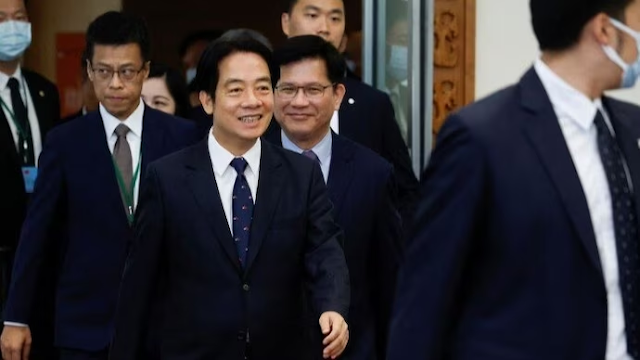China Asserts Firm Stance in Response to Taiwan Vice President's US Visit
China has recently reiterated its strong stance on the Taiwan issue, vowing to take "forceful, resolute" measures following the visit of Taiwan's Vice President to the United States. The diplomatic tensions surrounding this visit highlight the ongoing complexities and sensitivities surrounding the relationship between China and Taiwan, with implications for regional stability and global geopolitics.
Taiwan's Vice President's visit to the United States has been met with a sharp response from Beijing, which views Taiwan as an integral part of its territory and considers any official interactions between foreign countries and Taiwan as a violation of its sovereignty. China's stance on the Taiwan issue is longstanding and non-negotiable, reflecting its One-China policy that seeks reunification with Taiwan under Chinese rule.
The visit of Taiwan's Vice President to the United States is seen as a significant step in strengthening ties between Taiwan and its allies, as well as bolstering its international recognition. While the U.S. maintains unofficial relations with Taiwan, such interactions are viewed as sensitive by China, often prompting diplomatic protests and warnings.
In response to the visit, China's government spokesperson stated that they will take "forceful, resolute" measures to counter any attempts that threaten its sovereignty and territorial integrity. This rhetoric underscores China's commitment to safeguarding what it sees as its core national interests, particularly concerning Taiwan.
The situation raises concerns about regional stability, as the United States, a key ally of Taiwan, navigates its foreign policy in the context of an assertive China. The evolving dynamics between these major players have broader implications for the Asia-Pacific region and global power dynamics.
As the world closely watches developments in this diplomatic dispute, it is evident that the Taiwan issue remains a deeply sensitive and contentious matter for both China and Taiwan's allies. Balancing the aspirations of Taiwan for greater international recognition with the geopolitical realities and China's stance remains a delicate challenge.
In conclusion, China's response to the Taiwan Vice President's visit to the United States underscores the longstanding diplomatic tensions between China and Taiwan. The situation highlights the complexities of balancing geopolitical interests and maintaining regional stability. As the global landscape continues to evolve, the Taiwan issue remains a pivotal factor in shaping international relations in the Asia-Pacific region.

.png)
Comments
Post a Comment